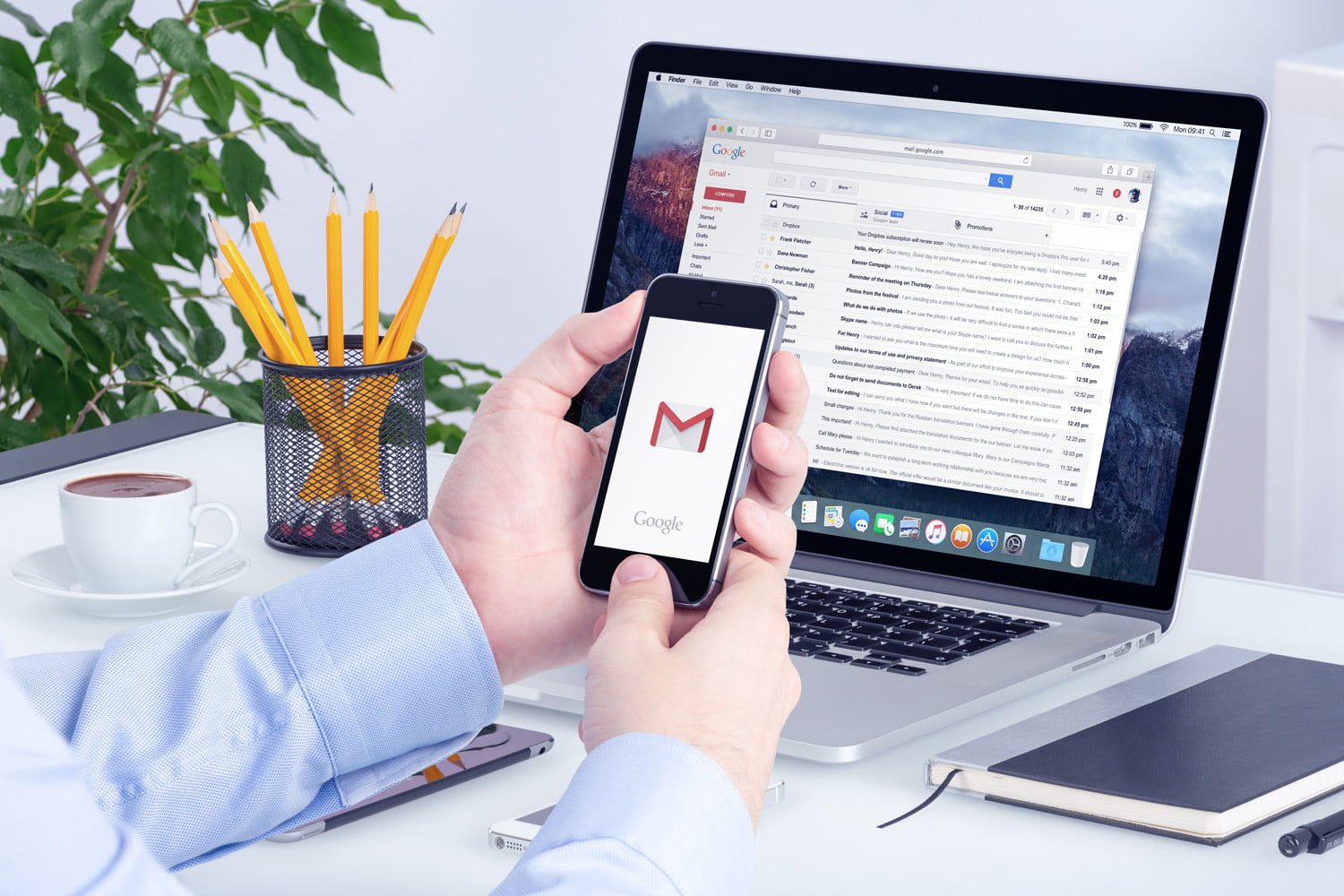When it comes to FBI Gmail, there's more than meets the eye. The Federal Bureau of Investigation (FBI) has long been associated with high-stakes investigations and cutting-edge technology. But what happens when Gmail gets involved? This isn't just another tech story—it's a deep dive into how one of the world's most powerful agencies interacts with one of the biggest email platforms out there.
Picture this: You're scrolling through your emails, checking out that latest newsletter or maybe a random promo code for sneakers. But somewhere behind the scenes, the FBI might be keeping an eye on things. Not because they're snooping on everyone—well, maybe some people—but because Gmail is such a massive platform that it can't escape the radar of law enforcement.
Now, before you start panicking and thinking Big Brother is watching, let's break it down. The relationship between the FBI and Gmail isn't all doom and gloom. In fact, it's a fascinating blend of privacy, security, and legalities that affects millions of users worldwide. So, grab a coffee, sit back, and let's unravel the mystery of FBI Gmail.
Read also:Is Mitch From Lenox Hill Still Alive The Untold Story You Need To Know
Understanding FBI Gmail: What's the Buzz All About?
If you're wondering why the FBI and Gmail are even in the same sentence, you're not alone. The buzz around FBI Gmail stems from the agency's authority to request data from tech giants like Google under certain legal circumstances. This includes Gmail accounts, which are prime targets for investigations involving cybercrime, terrorism, or even mundane cases like fraud.
But here's the kicker: the FBI doesn't just waltz in and take whatever it wants. There are strict legal procedures in place, often involving warrants or subpoenas. It's like a game of chess where every move is calculated and documented. So, while it might sound scary, there's a method to the madness.
How Does the FBI Access Gmail Accounts?
Accessing Gmail accounts isn't as easy as typing in a password. The FBI relies on federal laws like the Electronic Communications Privacy Act (ECPA) and the Stored Communications Act (SCA) to request data from Google. These laws outline the conditions under which law enforcement can obtain emails, metadata, and other user information.
- Warrants: For emails less than 180 days old, the FBI needs a warrant issued by a judge.
- Subpoenas: For metadata or older emails, a subpoena might suffice.
- Court Orders: In some cases, the FBI may use court orders to compel Google to hand over specific information.
It's a complex process that balances national security with individual privacy rights. And while it might seem like the FBI has all the power, Google isn't exactly a pushover. The company has been known to push back against overly broad requests and even publishes transparency reports detailing government data requests.
Why Should You Care About FBI Gmail?
Let's be real: most people probably aren't on the FBI's radar. But that doesn't mean you shouldn't care about FBI Gmail. The implications of this relationship extend beyond the realm of high-profile investigations. It affects everyday users in ways you might not even realize.
For starters, it raises important questions about digital privacy. In an age where our lives are increasingly online, knowing how and when the FBI can access your emails is crucial. It's not just about protecting yourself from criminals—it's about ensuring that your personal information remains, well, personal.
Read also:Suge Knight Age In 2034 The Untold Story Of A Hiphop Legend
The Privacy Debate: Is Your Gmail Safe?
The debate over privacy in the digital age is nothing new. But when it comes to FBI Gmail, the stakes are higher. On one hand, you have law enforcement agencies arguing that accessing Gmail accounts is necessary for national security. On the other hand, you have privacy advocates warning about the potential for abuse.
So, is your Gmail safe? The answer isn't black and white. Google invests heavily in encryption and security measures to protect user data. But no system is foolproof, and if the FBI has a valid warrant, there's not much you can do to stop them from accessing your account.
Key Statistics: The Scope of FBI Gmail Investigations
To understand the scale of FBI Gmail investigations, we need to look at the numbers. According to Google's transparency reports, the company received over 25,000 government requests for user data in 2022 alone. While not all of these requests were from the FBI, a significant portion likely involved Gmail accounts.
Here are some key statistics to consider:
- Google disclosed user data in response to approximately 65% of government requests.
- The majority of requests came from law enforcement agencies, including the FBI.
- Metadata, such as IP addresses and account creation details, was the most commonly requested information.
These numbers paint a picture of just how prevalent FBI Gmail investigations are in the modern world. And while the vast majority of users remain unaffected, it's still worth being aware of the potential for government surveillance.
How to Protect Your Gmail from the FBI
Now that you know the ins and outs of FBI Gmail, you might be wondering how to protect your account. While there's no foolproof way to completely shield yourself from government surveillance, there are steps you can take to enhance your digital privacy.
Enable Two-Factor Authentication
Two-factor authentication (2FA) adds an extra layer of security to your Gmail account. Even if someone manages to obtain your password, they won't be able to access your account without the second form of verification. It's like locking your front door and then adding a deadbolt for good measure.
Use Strong, Unique Passwords
Gone are the days when "password123" was considered secure. Use a strong, unique password for your Gmail account and avoid reusing passwords across multiple platforms. Tools like password managers can help you keep track of all your login credentials without breaking a sweat.
Encrypt Your Emails
Email encryption might sound like something only spies use, but it's becoming increasingly accessible for everyday users. Tools like PGP (Pretty Good Privacy) allow you to encrypt your emails so that only the intended recipient can read them. It's like sending a letter in a sealed envelope instead of writing it on a postcard.
FBI Gmail: The Legal Landscape
Understanding the legal framework surrounding FBI Gmail is essential for anyone concerned about digital privacy. Laws like the ECPA and SCA play a crucial role in regulating how law enforcement agencies can access user data. But these laws aren't without controversy.
Critics argue that the ECPA, which was enacted in 1986, is outdated and doesn't adequately address the complexities of modern digital communication. Efforts to update the law have been ongoing, but progress has been slow. In the meantime, the FBI operates within the confines of existing legislation, which sometimes leaves users feeling vulnerable.
International Implications
The legal landscape surrounding FBI Gmail isn't limited to the United States. As a global platform, Gmail is subject to data protection laws in countries around the world. This creates a complex web of regulations that can make it challenging for both Google and the FBI to navigate.
For example, the European Union's General Data Protection Regulation (GDPR) imposes strict requirements on how companies handle user data. If the FBI requests data from a Gmail user based in the EU, Google must ensure compliance with both U.S. and EU laws. It's a balancing act that highlights the global nature of digital privacy concerns.
Real-Life Examples: FBI Gmail in Action
To truly grasp the impact of FBI Gmail, it helps to look at real-life examples. Over the years, there have been several high-profile cases where the FBI's access to Gmail accounts played a pivotal role in investigations.
The Silk Road Case
One of the most famous examples is the takedown of the Silk Road, a dark web marketplace for illegal goods. The FBI used a combination of undercover operations and digital forensics to track down the site's operators. Gmail accounts were among the many pieces of evidence used to build the case against Ross Ulbricht, the alleged mastermind behind the operation.
The Hillary Clinton Email Controversy
No discussion of FBI Gmail would be complete without mentioning the Hillary Clinton email controversy. While the investigation primarily focused on Clinton's use of a private email server, it highlighted the broader issue of email security and government access to digital communications. The FBI's handling of the case became a major talking point during the 2016 U.S. presidential election.
The Future of FBI Gmail
As technology continues to evolve, so too will the relationship between the FBI and Gmail. The rise of artificial intelligence, quantum computing, and other emerging technologies is likely to reshape how law enforcement agencies approach digital investigations.
But one thing is certain: the debate over digital privacy will only intensify. As more aspects of our lives move online, the need for robust legal frameworks and technological safeguards becomes increasingly urgent. The challenge for policymakers, tech companies, and users alike is finding a balance that protects both individual rights and public safety.
What Can You Do?
While you can't control the actions of the FBI or Google, you can take steps to protect your own digital privacy. Stay informed about the latest developments in digital privacy law, and don't hesitate to speak out if you believe your rights are being violated. After all, the future of FBI Gmail—and digital privacy as a whole—depends on all of us working together to find solutions.
Conclusion: The Bottom Line on FBI Gmail
In conclusion, FBI Gmail is more than just a catchy phrase—it's a complex issue that touches on some of the most pressing challenges of the digital age. From privacy concerns to legal debates, the relationship between the FBI and Gmail raises important questions about the balance between security and freedom.
So, what can you do? Start by educating yourself about digital privacy and taking steps to protect your own data. Enable two-factor authentication, use strong passwords, and consider encrypting your emails. And if you're passionate about digital rights, get involved in advocacy efforts to ensure that laws keep pace with technology.
Remember, the world of FBI Gmail isn't all doom and gloom. With the right tools and knowledge, you can navigate the complexities of digital privacy and stay one step ahead of the game. So, go forth and take control of your digital destiny. And if you enjoyed this article, don't forget to share it with your friends and leave a comment below. Let's keep the conversation going!


